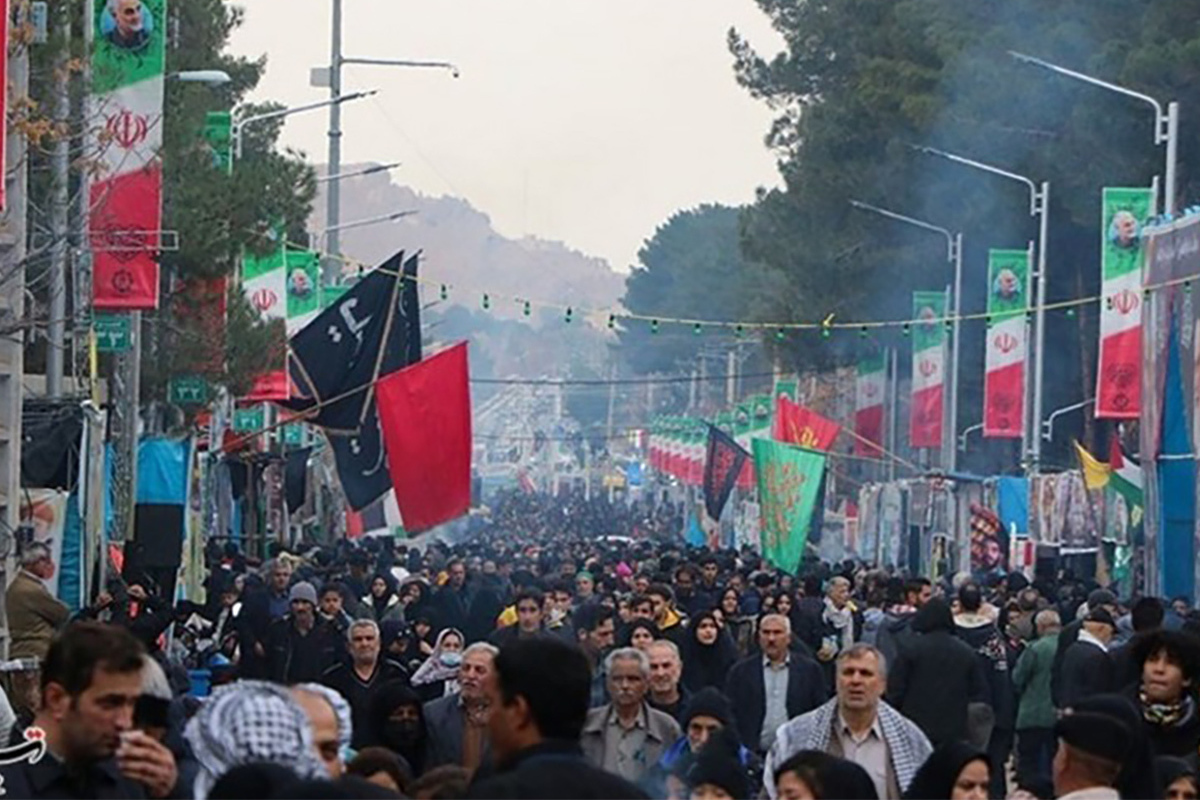Suspects named in bloody terrorist attack at Iranian general’s grave
[ad_1]

Iran said it was taking steps to bolster security along its borders with Afghanistan and Pakistan, the first tangible sign that it suspects Wednesday’s attack on a crowd marking the anniversary of the death of a senior Islamic Revolutionary Guard Corps commander was the work of an affiliate.” Islamic State” (ISIS is a terrorist group banned in the Russian Federation).
At last count, at least 84 people were killed when two explosions ripped through crowds near Qassem Soleimani’s grave in the southern Iranian city of Kerman, four years after the IRGC general was killed in a US drone strike in Baghdad.
According to The Guardian, the border closure suggests Iran believes the attack may have been carried out by Islamic State Khorasan Province, a Sunni group operating mainly in Afghanistan that is strongly opposed damage done to the ISIS cause by General Soleimani in Iraq and Syria.
“We have points on the border of Afghanistan and Pakistan that are a priority for blocking,” Iranian Interior Minister Ahmad Vahidi said on Thursday.
One of the main goals will be to limit the number of vehicles crossing the border, which will be discussed with the Taliban (the Taliban movement is recognized as a terrorist organization in the Russian Federation and is prohibited). Afghan opposition leader Ahmad Massoud has already sent a message of condolences to Iran, making it clear that he believes the Islamic State is involved. The same terrorist group was responsible for a previous deadly attack in Iran in 2017.
Earlier, Iranian Foreign Minister Hossein Amir-Abdollahian said the country had sent a letter to the UN Security Council to inform its members that it was taking all “legal measures” to ensure accountability for the attack in Kerman.
The Islamic Revolutionary Guard Corps promised a tough response to the terrorists, describing the attack as “a blind and vicious act aimed at sowing uncertainty in the country and avenging the love and devotion of the great nation of Iran.”
Iran’s First Vice President Mohammad Mokhber told reporters that those responsible for the attack “will receive very strong retaliatory measures from Soleimani’s soldiers.”
Tensions in the region have risen in recent days amid the war in Gaza, sparked by the October 7 Hamas attack on Israel, which Tehran welcomed but denied any involvement, The Guardian recalls.
On Sunday, US helicopters opened fire on Iran-backed Houthi rebels after they attacked a cargo ship in the Red Sea, killing several of them. Then on Tuesday an Israeli drone strike killed one of Hamas’s most senior officials in Beirut, and on Thursday the US said it carried out an airstrike on the Iranian-backed militia’s logistics headquarters in central Baghdad, killing a senior militia commander.
Early Iranian reactions to the Kerman attack pointed to the United States and Israel. Washington rejects any suggestion that the Americans or their ally Israel were behind the deadly blasts, while Israel declined to comment.
Experts outside Iran say the attack bore the hallmarks of the banned terrorist Islamic State. Western sources said it was likely that the group sensed that the well-publicized annual anniversary pilgrimage to the Iranian general’s grave could be controlled by security forces distracted by events elsewhere.
Hospital officials in Kerman on Thursday lowered the death toll to 84 from about 100 and said they were optimistic that more than 200 people being treated for injuries would survive. When the names of the dead were released, the health ministry said 28 of the victims were under 15 years of age.
General Qassem Soleimani, who helped create Iran’s regional “axis of resistance” against the US by supporting Iranian proxy groups, has achieved almost mythical status within Iran since his death, The Guardian writes.
There are no signs that Iran will quickly retaliate for the Kerman attack. Instead, he will try to use the wave of sympathy in the Islamic world to redouble his call for the US to end its destabilizing intervention in the Middle East.
Iranian hardliners often praise Tehran’s “strategic patience” in seeking a long-term ousting of the US from the region and believe that Israel is trying to drag Iran into a full-scale war because Israel feels it is the best way to prevent a disengagement with the US.
[ad_2]
Source link








